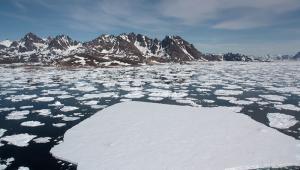A government crew tasked with cleaning up Mount Everest is struggling after a record number of people flocked to the iconic site this season.
The mountaineers are dumping everything from empty oxygen cylinders, food packets and rope – and campaigners say some leave human waste that threatens to contaminate drinking water.
A record number of people have chosen to climb Everest this year – about 700 climbers, guides and porters – adding to the huge job faced by ethnic Sherpas who work on the Nepalese government’s campaign to clean up the mountainside.
Tonnes of rubbish has been left by exhausted climbers struggling to breathe at high altitude, who abandon equipment rather than attempting to carry it down.
Dawa Steven Sherpa, a leading figure in efforts to clean Everest, whose own expeditions have brought down about 44,000 lbs of rubbish since 2008, told journalists: “The altitude, oxygen levels, dangerously icy and slippery slopes, and bad weather of South Col [Camp 4 on the ascent] make it very difficult to bring such big things as tents down.”
A growing concern is public health, as some climbers are not using makeshift toilets but digging holes in the snow or letting waste fall into crevasses.
As rising temperatures thin the glacier, waste shifts downhill towards communities that use melted snow for drinking water.
The situation angers many people in Nepal who regard the mountain as sacred, calling it the Mother of the World.
Ang Dorjee, head of the Everest Pollution Control Committee, has called on Nepal’s government to introduce clear rules.
“The problem is there are no regulations on how to dispose of the human waste. Some climbers use biodegradable bags that have enzymes which decompose human waste, but most of them don’t,” he told reporters.
The Nepalese government is reportedly developing plans to require climbers to leave a deposit before ascending that they would forfeit if they did not return with the same equipment.














